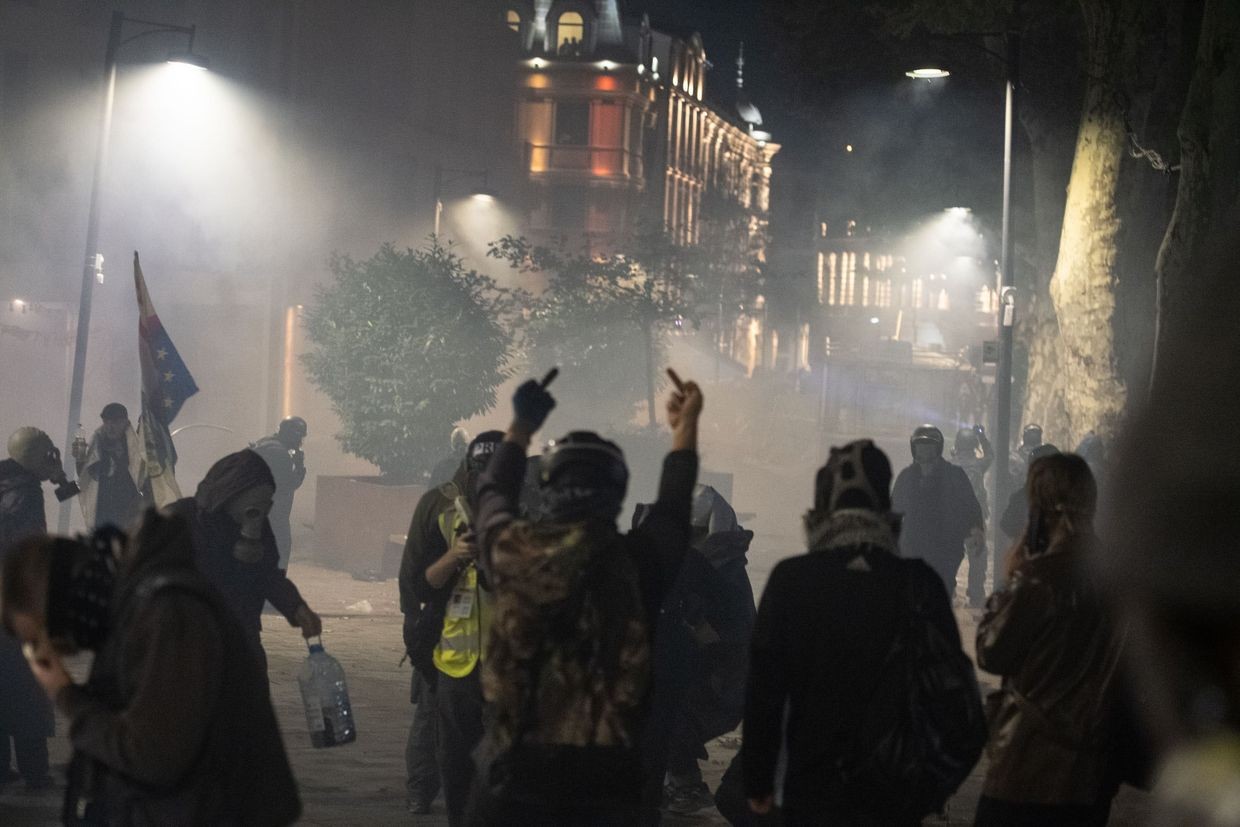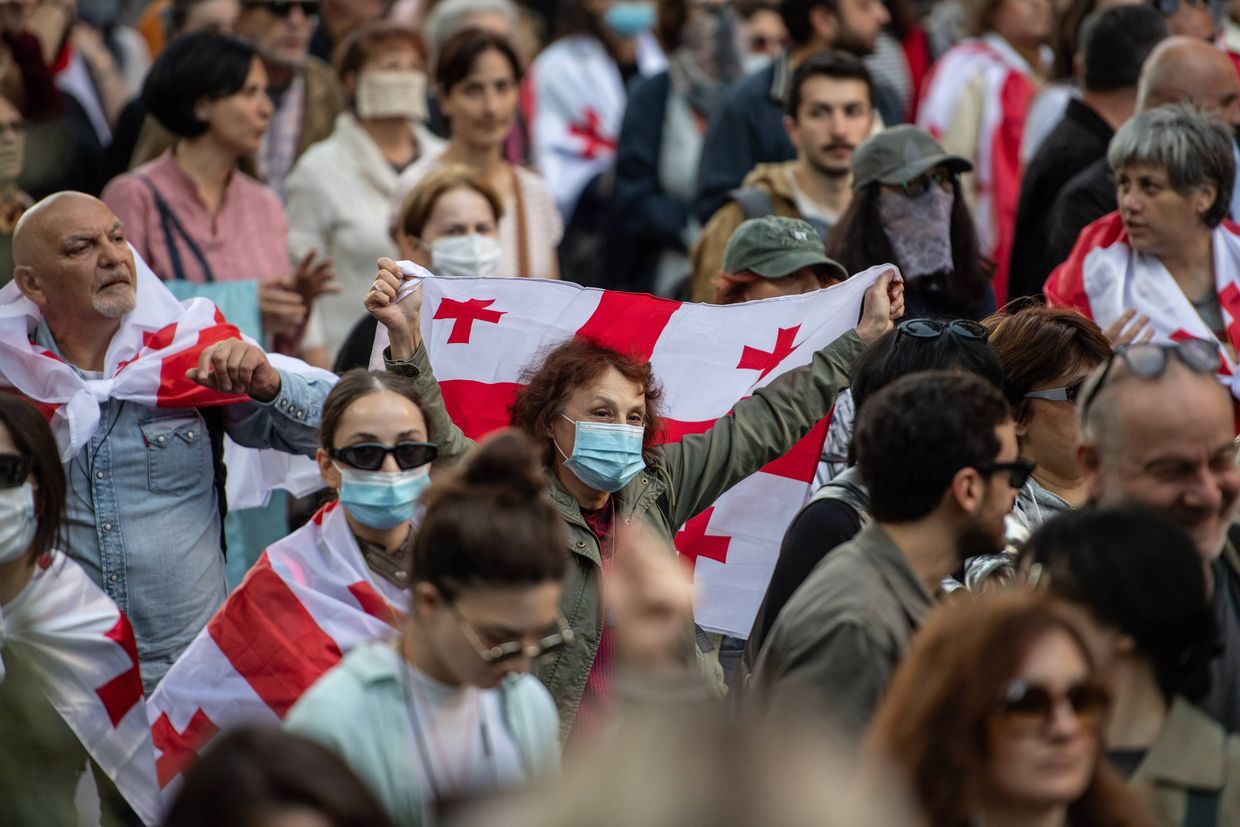
Editor’s note: This article has been amended to clarify the nature of the charge brought against the seventh defendant and its corresponding penalty.
The Prosecutor General’s Office of Georgia has charged seven individuals with obstructing journalists from the pro-government TV channels Imedi and Rustavi 2 during the 4 October anti-government rally.
The Prosecutor General’s Office claimed that the individuals had ‘illegally interfered’ with the journalists’ ability to do their job by using pepper spray and other forms of physical interference, as well as threatening violence.
The journalists in question were from the prominent pro-government media outlets Imedi and Rustavi 2.
The Prosecutor General’s Office said investigators were still working to identify other individuals that were involved.
The minimum penalty for the charge faced by the six is a fine, while the maximum is up to two years of house arrest. The seventh individual was charged under the second paragraph of the same article, accused of threatening violence — an offense punishable by a minimum fine and a maximum of up to two years in prison.
In response, some critics have emphasised that the state has not punished either the police officers or the unidentified individuals who attacked journalists critical of the government during protests, brutally assaulting some of them.
With the addition of the seven charged for obstruction, the total number of people arrested in connection to the 4 October protests has reached almost 70.
On 4 October, in parallel to the partially boycotted municipal elections, tens of thousands gathered on Tbilisi’s Liberty Square to attend an anti-government demonstration, branded previously as a ‘peaceful revolution’.
In the early evening, after hearing a call for male demonstrators to march toward the nearby Presidential Palace on Atoneli Street, a group of protesters attempted to storm the building. In response, police used tear gas, water cannons, and pepper spray. Protesters built barricades, and sporadic clashes around the residence continued late into the night.
The Georgian government has since called the unrest a coup attempt which it has blamed on domestic opposition they claim was aided by ‘foreign intelligence services’.
Among the detainees are all five opposition figures who positioned themselves as organisers of the protest. They face up to nine years in prison.
Since 4 October, the court has ordered pre-trial detention for nearly all detainees, including those with hard social or health conditions — except for two. Among those released on bail is 71-year-old pediatrician Giorgi Chakhunashvili, whose arrest sparked outrage, including among fellow doctors.
Daily anti-government protests in Georgia have been ongoing since the government’s 28 November 2024 decision to halt the country’s EU membership bid, which came after disputed parliamentary elections a month earlier.











